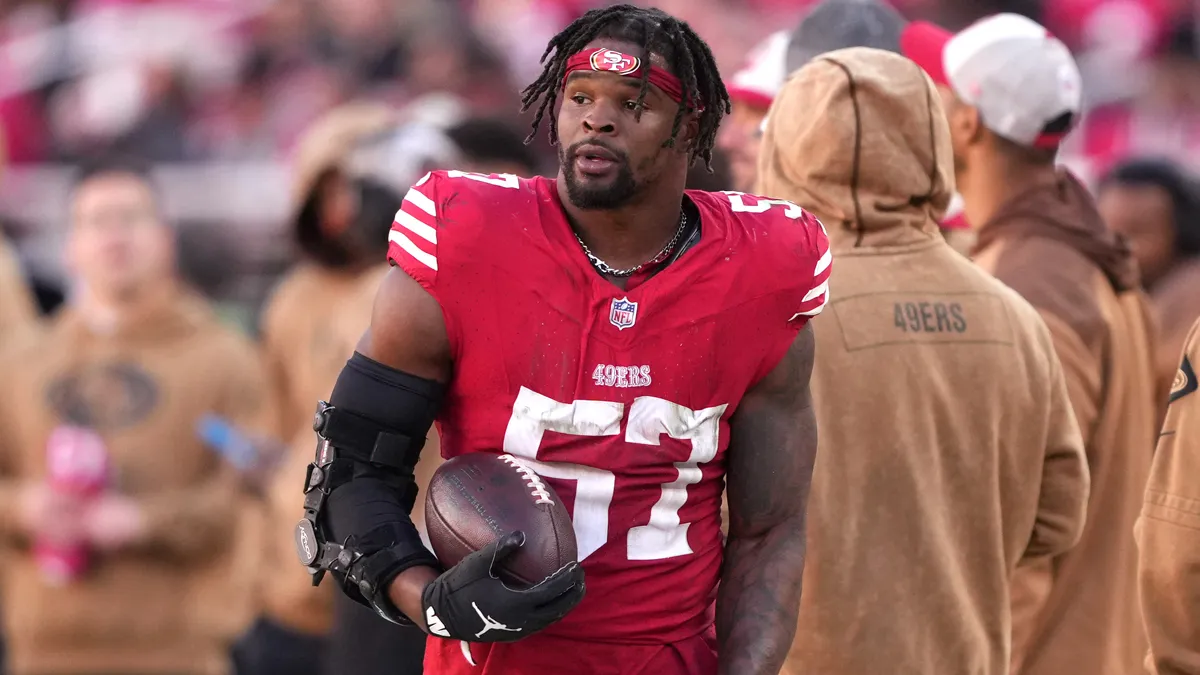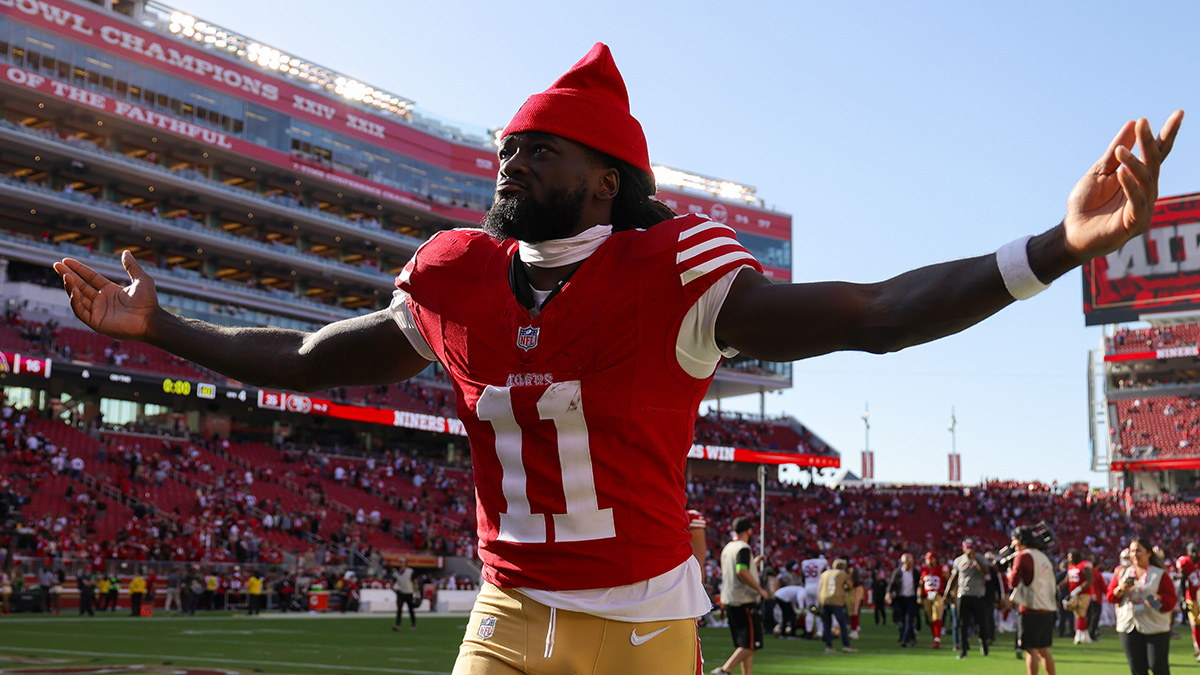Editor's note: Twice a week, NBC Sports Bay Area will look back on biggest "What If?" moments in Bay Area sports history in our "Hindsight 2020" series. The fifth installment: What if Dwight Clark didn't make "The Catch"?
The third-down play was doomed from the beginning.
The primary receiver, Freddie Solomon, slipped on the saturated Candlestick Park turf. Joe Montana was under pressure as he drifted right, toward the sideline, and threw off his back foot. The pass sailed high, out of the back of the end zone, just beyond the reach of Dwight Clark, who was weakened from the flu.
Stay in the game with the latest updates on your beloved Bay Area and California sports teams! Sign up here for our All Access Daily newsletter.
Of course, that’s not how it really happened. But ... what if?
What if Montana threw the pass just an inch higher. What if Clark could not stretch his 6-foot-4 frame to the absolute limit and secure the football in his fingertips? What if the 49ers had lost the NFC Championship Game to the Dallas Cowboys on Jan. 10, 1982?
First, it’s a matter of how they would have lost that game, which in real life was the springboard to the 49ers’ first of five Super Bowl championships over 14 seasons.
The play that would become known as "The Catch" happened on third and 3 from the 6-yard line with 51 seconds remaining, with the 49ers trailing the Cowboys 27-21. Coach Bill Walsh often said he had already planned on calling a run play on fourth down.
San Francisco 49ers
Find the latest San Francisco 49ers news, highlights, analysis and more with NBC Sports Bay Area and California.
And for the purposes of this exercise, we’re going to assume the Cowboys’ defense was able to stop 49ers running back Lenvil Elliott short of the first down. Walsh would have undoubtedly been widely second-guessed for that decision.
Fans and media would have scrutinized Walsh’s decision to run the ball, for sure.
“I suspect Walsh would have pointed out that, on that final drive, the 49ers ran the ball five times for 45 yards,” said Ira Miller, the preeminent 49ers beat reporter for decades with the San Francisco Chronicle.
“His thinking was that a running play on fourth down would have had a good chance against the Cowboys defense, which would have been going all-out on a pass rush.”
It would have been added to the list of crushing playoff defeats at the hands of the Cowboys, an organization that eliminated the 49ers from the postseason three straight seasons in the early 1970s.
How would have young, brash owner Eddie DeBartolo reacted? His view on the third-down play was blocked as he stood behind a police horse behind the opposite end zone. We assume he would have situated himself in a more-ideal spot to watch the fourth-down play.
DeBartolo and Walsh often clashed during their nine seasons together. But that game against the Cowboys took place before success was measured solely on the basis of whether a Lombardi Trophy was added to the collection at the end of the year.
“That season was so out of the blue, the fans might have been happy just to get to the championship game,” Miller said. “Remember, this was a different era; there were no expectations. Not low expectations, no expectations. Not sure how Eddie would have reacted. Remember, at this time, as volatile as he could be, he never had tasted any kind of success with the 49ers. So it’s not as though he was expecting it.”
For all his genius, Walsh had deep-seated insecurities. And Miller wonders if Walsh might have dwelled on the missed opportunity and been “crushed by himself.”
After the 49ers finished 3-6 in the strike-shortened 1982 season, Walsh contemplated resigning as coach. Walsh said drug use on the team contributed to the team’s dramatic drop-off. Throughout his time with the 49ers, he either quit or was fired numerous times before Walsh and DeBartolo would cool down and come to some understanding to continue the union.
The 49ers bounced back in 1983 to post a record of 10-6. Then, Walsh’s team sustained a heartbreaking loss to Washington in the NFC Championship Game, during which several questionable calls went against the 49ers in key situations.
[49ERS INSIDER PODCAST: Listen to the latest episode]
Without the background and credit of the team’s first Super Bowl following the 1981 season, there would have been questions about Walsh – if he remained as coach for this long. Is he capable of taking a team all the way?
Walsh once famously said of journeyman quarterback Steve DeBerg, “He’s just good enough to get you beat.” There would have been a similar thought about Walsh at that point.
If Walsh was not around long enough to win a first Super Bowl, when would the 49ers have won it all? The team's offense would have been a different system with entirely new coaches, and the new decision-makers undoubtedly would've brought in different players.
Now, of course, the late Walsh’s status among the elites is secure.
Walsh ranks near the top in the history of professional football when it comes to innovation and intelligence, as well as motivation and organizational skills.
He did not reach the pinnacle of his profession by himself.
DeBartolo gave him the chance and opened his wallet to provide all the support he requested.
Walsh had such individuals on the football side as executive John McVay and scout Tony Razzano to assist him with personnel.
He established a coaching staff that included George Seifert, Mike Holmgren, Sam Wyche, Dennis Green, Bobb McKittrick and Bill McPherson.
The 49ers added great players, as well as the right kinds of players to fit Walsh’s structure. The 49ers’ first Super Bowl championship team had three rookies – Ronnie Lott, Eric Wright and Carlton Williamson – starting in the defensive backfield.
Joe Montana took to Walsh’s coaching and system, combining that with his skills, to become one of the great quarterbacks of all time.
And, most important, Dwight Clark did not allow that ball to slip through his hands.


